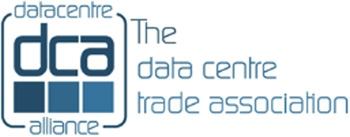GDPR & your privacy.
Your privacy as a member is important to us. Recently, rules surrounding privacy have changed, so we have created this manifest for you to read and accept.
It is not possible for you to be classed as an authentic member of the DCA unless you accept the terms, that includes but is not limited to the GDPR statement below.
Please read the privacy policy here.
50 Shades of Green
The data centre remains the beating heart of our digital world. Businesses and society rely on these facilities to keep connected, informed and entertained. However it is important that we all recognise that these services come at a price not just on the pocket but also to the environment.
With every GB of data processed, transferred or video streamed just that little bit more energy is consumed, and even more technology is needed to service it, and this is something every one of us needs to recognise and own. The COVID-19 pandemic especially has given business the impetus to consider their buying choices and habits. It seems now more than ever people are willing to participate in sustainable practices or work towards improving sustainability.
For the past 7 years the DCA has included Sustainability as part of the DCA Energy Efficiency Special Interest Group remit. Despite both subjects being intrinsically linked they have now both become such big issues in their own right that the decision was made to separate them out into two dedicated working groups, with John Booth remaining Chair of the Energy Efficiency Group and Astrid Wynne becoming Chair of the newly formed Sustainability Group.
John Booth, chair of the Energy Efficiency and Sustainability explained, “The conversation is changing because the world is changing. Climate change, energy and resource scarcity are now further up the agenda than ever before, and governments around the world are slowly but surely beginning to address these problems. Data Centres are complex, “systems of systems” involving ICT equipment, servers, storage and networking, resilient power supplies, cooling as well as the actual buildings themselves. We must look at raw material extraction, processing, manufacture, transport, in use and disposal for all elements within the system and if necessary redesign all of this to be more sustainable.”
Why and why now?
Co-founder of the DCA Steve Hone said, “Continuing to simply consume more and more data without taking into account the impact we are having on our environment is irresponsible and unsustainable. We all have a moral duty to try to leave this world in a better condition than we found it.”
He added, “The UK Government’s commitment to a sustainable future includes a pledge that the UK is to be carbon neutral by 2050. The headline is wonderful, but it is a near impossible target to reach unless everyone is pulling in the same direction. A commitment such as this demands a “cradle to grave” approach, which needs to address not only energy production and consumption but also the technology needed to deliver these services.”
Group member Dr Jon Summers, from the RI.SE Institute in Sweden says that this needs to include everything from the “chip to the cloud” alongside a serious look at the consumption and storage habits of consumers. With so many of us recycling household plastics and cardboard, we need to do the same as an industry with our historical data and the hardware it sits on. Not all ones and zeros need to be saved in triplicate or stored forever. Older technology can still be repurposed to extend its life.
What is in it for data centre managers?
In a sector beset with all kinds of critical issues, sustainability has in the past seemed like a lower priority for data centre managers. However, there is a lot of evidence that performance on people and planet plays to the bottom line too, particularly in a sector that is responsible for high energy use.
Writing as a guest blogger for Schneider, IDC Research Director Jennifer Cooke said, “Organizations are setting aggressive goals to reduce their carbon footprint and impact on the earth by 2025 and 2030 and beyond. Colocation providers that understand the critical role IT and data center resources have in this journey are making investments today to prepare for their customers’ needs in five years.”
According to the IDC, 55% of organizations believe that a colocation provider has a better ability than they do for monitoring environmental conditions and power consumption in white spaces. In other words, they are buying into the cloud as a solution to their data transfer and storage energy optimisation. 43% said energy efficiency and green initiatives was a top driver in their choice of colocation provider.
There are benefits for those hoping to attract investment too. In 2019, the Harvard Business Review interviewed 70 senior executives at 43 global institutional investing firms, including the world’s three biggest asset managers (BlackRock, Vanguard, and State Street), giant asset owners, and the government pension funds of Japan, Sweden, and the Netherlands. It found that environmental, social and governance issues were almost universally top of mind for these executives.
Finally, in a sector for which attracting and retaining skilled personnel is a focus, demonstrating best practice in sustainability is a real asset. A global survey conducted by LinkedIn in 2016 revealed that 74% of candidates want a job where they feel like their work matters.
What does the Sustainabilty SIG hope to achieve?
With the UK leaving the European Union, there is a need for domestic legislation with respect to Zero Carbon, Circular Economy. The DCA hopes to help with this process by collecting expert insight from across the value chain as well as from academics and researchers in the field. The scope of the SIG is wider than just energy efficiency. It also spans circular economic approaches to infrastructure refresh, mitigation of scope 3 emissions in the building, how smaller data centres can achieve renewable power supply, facilities and IT hardware, relevant standards and suggested regulation, education of the wider sector with respect to this. Ultimately this will lead to best practice guides for the sector which can then be shared with the UK government.
+ 44 (0)845 873 4587
info@dca-global.org




